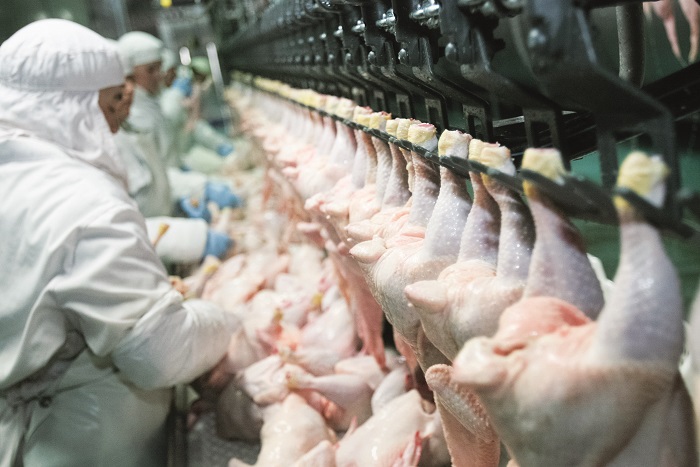British poultry producers would be considerably worse off financially under any post-Brexit scenario, a new study has concluded.
The Agriculture & Horticulture Development Board has published an impact assessment weighing up how different farms are set to fare depending on what terms the UK is trading with the EU post-Brexit. It analysed two main possible outcomes: a free-trade agreement (FTA) with the EU, and the UK reverting to World Trade Organization (WTO) tariffs.
For poultry businesses, the report calculates that under FTA terms farms are set to make a loss of £32.60 per 1,000 birds, while under WTO rules the loss would be smaller, at 1p.
That is because an increase in fixed labour and machinery costs of £60 per 1,000 birds and £10-11 for feed, fertiliser and plant protection costs would not be compensated for despite a sales income boost of £8 per 1,000 birds under an FTA and £39 per 1,000 birds under WTO tariffs.
“In terms of trade, the UK is a net importer and production revenues rise due to rising poultry prices in both scenarios,” the report said. “This is caused by trade friction on imports under both scenarios, and the imposition of tariffs for trade outside the 0 per cent TRQ under the WTO:UK tariffs scenario.”
The report added that a constraint was added to the gravity model such that imports of fresh poultry could only come from the EU because the length of the supply chain precludes fresh imports from distant lower-cost producers such as Brazil and Thailand.
On the domestic market, the study predicted that poultry prices would rise by 1.5 per cent under the EU FTA model, and by 2.3 per cent under WTO tariffs.
Domestic poultry production is expected to remain unchanged under a free-trade agreement, but would increase 11 per cent under the WTO option.
Under any scenario, AHDB said the top performers will remain resilient, but said businesses must stay on top of factors inside their own control including knowing their market and keeping a focus on attention to detail.
British Poultry Council chief executive Richard Griffiths said: “We’ve got to the point where people are actively encouraging Brexit, despite knowing the harm it will cause to the country. Now is the time to have a good hard think about whether this is still the path we want to go down.”


